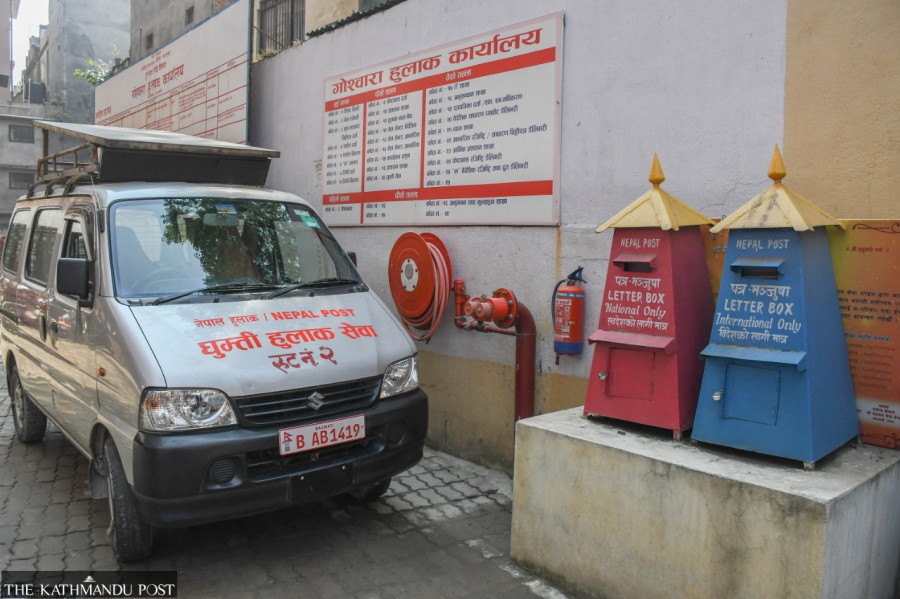Editorial
Recharge the post office
Private players have been allowed to thrive at the expense of essential government services.
We have all witnessed the effects of the gradual digitalisation process; something that was normal two decades ago, such as writing letters or sending a telegram, has become virtually defunct. The growing popularity of mobile phones and SMS texting reduced dependency on snail mail as a mode of communication, adversely affecting the usage we get out of our postal system. Nepal’s postal system dates back to 1878 when it was effectively the only means of communication. Despite its use in dispatching letters and parcels, it can be seen dying a slow and agonising death.
The number of physical letters may have dropped, and it may not command the same level of reverence that it used to even two decades ago, but the postal system is still relevant, and it should be. What is perhaps needed is a fresh makeover. We usually associate the postal system with sending and receiving letters and parcels, and primarily that is what it does. And to a large extent, its income is directly proportional to the number of stamps it sells, and with the ever decreasing number of customers, it will be harder to match up to the glory days of yesteryear.
A quick scan of the postal website reveals various services that we may be familiar with, primarily concerning the usual act of sending and receiving letters and parcels. Still, some services exist that we may know of yet have never used or long stopped using—for example, money transfer service, postal savings bank and insurance. The drop in the number of people writing letters can be attributed to the advancement in technology primarily revolving around the internet, but how many of us think of the post office when it comes to using its banking, insurance or money transfer service? Does it even operate a phone application?
Being relevant is always about re-inventing oneself. If we as individuals need to update our skill sets to stay relevant constantly, so do businesses or service providers. The authorities, it seems, allowed the post office to gradually slip into oblivion with countless other governmental services that had thrived for so long. After all, with all the political wrangling and jostling for lucrative ministerial berths, how would it be possible for the authorities to set aside time and effort in reviving an essential service?
The crux of the problem is that private players have been allowed to thrive at the expense of such essential government services, whether transport or telecommunication. It is not to say that private players aren’t necessary, but no action should decimate such services. And perhaps what the post office lacks is the will to compete in the face of such negligence. A rebranding of its image as not just a carrier of postal letters but also a provider of other services ranging from insurance to banking could go some way in breathing life into its now derelict functions.




 9.7°C Kathmandu
9.7°C Kathmandu














